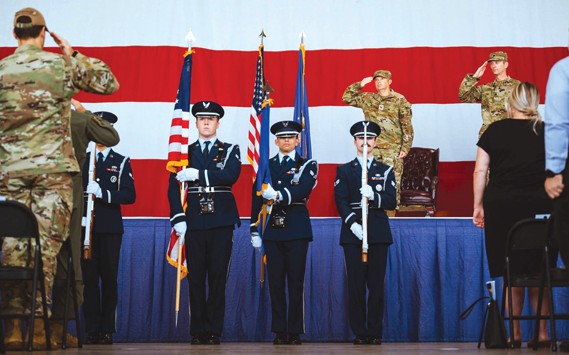Unlike the sorrowful portrayals that dominate Vietnam War history books, movies and documentaries, Heath Lee’s new book, The League of Wives: The Untold Story of the Women Who Took On the U.S. Government to Bring Their Husbands Home from Vietnam, offers an unexpectedly uplifting account from a previously overlooked perspective. This is the fascinating saga of a group of military spouses who, after being informed that their husbands were being held by the North Vietnamese as prisoners of war or were missing in action, fought those in power for truth and diplomacy, and against all odds, won. Though the Vietnam War would be dubbed “a lost cause,” the battle waged by the brave wives was undoubtedly an inspiring success.
What began with a gathering of 13 grief-stricken Navy wives around Sybil Stockade’s Coronado dining room table in 1966, grew into “The National League of Families,” with a membership that included thousands of determined POW/MIA wives, official headquarters at 1 Constitution Avenue in Washington, D.C., and a direct telephone link to the White House.
In order to muster the chutzpah to take on government officials and top military brass who had told them to “keep quiet,” the wives had to shed strict military spouse protocol and 1960s cultural norms. These reluctant feminists became brave warriors — relentlessly demanding meetings with U.S. presidents and diplomats, working with Naval Intelligence to exchange coded letters with their POW husbands in Hanoi, publicizing the truth about the use of extreme torture by North Vietnamese captors, holding press conferences to criticize the U.S.’s weak diplomacy efforts, and showing up at embassies in Paris and Stockholm successfully demanding to speak with North Vietnamese representatives.
Interestingly, the National League of Families formed unexpected alliances to accomplish their objectives. Disgusted with the cover ups of the Johnson administration, the POW/MIA wives embraced Richard Nixon as president. Unlike LBJ who refused to meet with them, Nixon listened to and worked with the women, encouraging National Security Advisor Henry Kissinger to meet with them bimonthly. However, the League also found itself trapped in an uneasy relationship with communist supporting peace groups, because the sympathizers had the ear of the North Vietnamese and could exchange the wives’ letters, packages, and sometimes, prisoners themselves. The wives even forged a friendship with Texas oil tycoon, Ross Perot, who supplied them with his own piloted jumbo jet to fly them to Sweden and South Asia to demand meetings with North Vietnamese officials.
In the end, the diplomatic efforts of the U.S. government, as heavily influenced by the powerful League of Families, led to Kissinger negotiating with the North Vietnamese for the POWs’ release. They came home, battered but not broken, on Feb. 12, 1973. During the eight years that the North Vietnamese held U.S. prisoners of war, their wives organized and advocated fervently for their rescue, all while grieving, managing households, raising children, struggling financially, experiencing crushing loneliness and mental health issues, and even battling cancer.
Heath Lee deftly tells this well-researched, extraordinary tale by weaving military, political, and cultural history with fascinating personal diary entries and quotes from “key influencers” such as Sybil Stockdale, Jane Denton, Andrea Rander, Louise Mulligan, Phyllis Galanti, and Helene Knapp, as well as Kissinger, Nixon and naval intelligence officer Bob Boroughs, who the women dubbed “Uncle Bob.” Lee makes sense of the complicated historical timeline so that we, the readers, suffer the tragedies and celebrate the successes with the women — from ominous military officials knocking on their doors with devastating news, to their awkward but heartfelt reunions with their husbands so many years later.
As a navy wife myself, I found Lee’s League of Wives to be incredibly fascinating, but also, the book left me welling with pride, not only in the brave U.S. prisoners of war and missing in action, but in the enduring resilience of military spouses who face challenges alone with courage, strength and honor.











